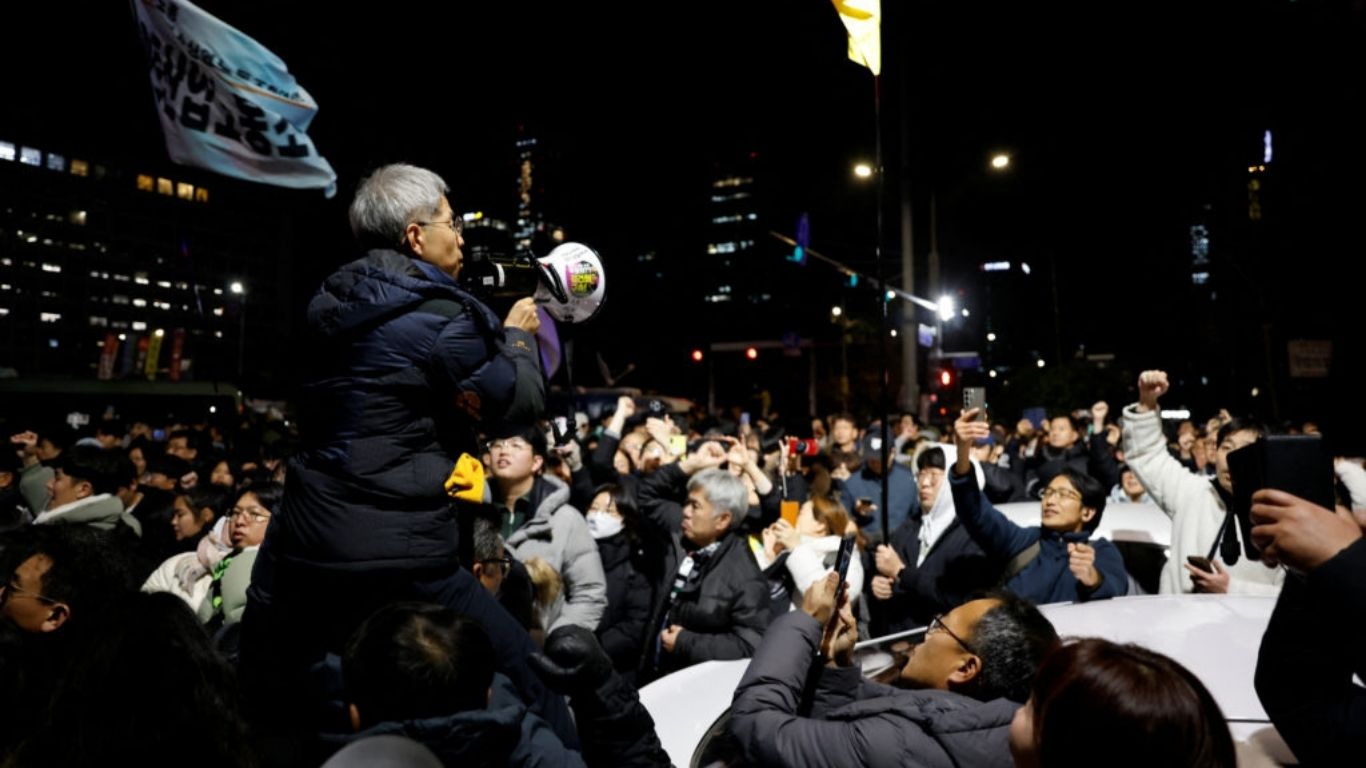Last week, in a town south of Brussels, a group of Belgian citizens held a protest under the name of the Belgian party Flemish Interest. They carried signs showing dislike for Islam and immigrants. Also, in the general elections on September 25, 2022, the Brothers of Italy party, led by Giorgia Meloni, won and formed a government with other parties that have similar, right-leaning ideas. The Brothers of Italy is known as a far-right, neo-fascist political party. There is a notable emergence of similar far-right movements in Italy, Finland, Spain, and Hungary, where populist right-wing protests and marches have become increasingly prevalent, often in opposition to constitutional norms.
Research conducted by political scientist Matthijs Rooduijn indicates that 32% of European voters participated in national elections across 31 countries last year by voting for parties outside the mainstream political spectrum. This marks a significant increase from 20% at the dawn of the 21st century and just 12% at the outset of the 1990s.
This trend suggests that one in three Europeans is now casting their votes against the established political order, a considerable portion of which subscribes to far-right ideologies. This article explores the current landscape of far-right politics in Europe and the factors contributing to their rising influence.
Who Are the Far-Right Parties?
Far-right or ultra-nationalist political parties are entities characterized by extreme nationalism, authoritarianism, and a strong commitment to a singular ideological viewpoint, often displaying intolerance towards alternative perspectives. They typically advocate for traditional values, the reinforcement of borders, and express opposition to multiculturalism and globalization (Mammon, 2009). Although a universally accepted definition for far-right political parties is absent, political scientists recognize several common characteristics.
Far-right groups are often labeled as radical right, populist, far-right populist, or radical populist right (Mudde, 2007). These parties reject pluralism, minority rights, and the principles of liberal democracy (Oner, 2014). Fundamentally nationalistic, the far-right holds that the state should primarily serve the interests of its indigenous population, viewing immigrants and foreign elements—particularly Islam—as a significant threat to the nation-state’s homogeneity. The emergence of such parties following World War I, including Italy’s National Fascist Party, Germany’s Nazi Party, and Austria’s National Socialist German Workers’ Party, was propelled by nationalist ideologies promoting strong centralized power and restricted political freedoms, contributing to the outbreak of World War II.
The European Situation Today
After the Renaissance, Europe saw a time when people focused more on human values and less on the idea that kings had a special right from God. This period led to important changes like the Bill of Rights in England and the fall of the Bastille in France, which were all about freedom, equality, and brotherhood. These events started a time when liberal democracy became the main way of governing. However, today, extreme right-wing ideas are causing big problems for this democratic system in Europe.
Right now, there are 234 political parties in Europe that don’t agree with the current system, and 112 of them are considered far-right. In the 2022 elections, the Brothers of Italy got 26% of the votes, and Marine Le Pen’s National Rally in France won 41.46% in the 2022 presidential elections. Also, Alternative for Germany (AfD) got 10.3% of the votes in 2021, Spain’s far-right VOX party got 15%, and in Hungary, Victor Orbán’s far-right party won 59% in the 2022 elections, allowing them to form the government. In some countries,
Factors Contributing to the Rise of Far-Right Extremism
Discontent with Traditional Political Systems
A significant factor driving the convenience of far-right and far-left political parties is widespread disenchantment with traditional political systems. Despite current backlash for the republic, arsenic the pet cast of organization among Europeans, thither is associate in nursing constructing point of dissatisfaction with political operation.
Immigration stands out as a central problem prompting governments to apply policies that face considerable opposition from the populace. Right parties adeptly used this disillusion to position themselves as feasible alternatives adequate to instigating significant shifts. For example, in 2007, 51% of French citizens expressed confidence in the European Union, a figure that plummeted to just 33% by 2018. This development of the corrosion of bank politics has importantly added to the rise of right-wing movements.
Impacts of Globalization and Anti-Multicultural Sentiments
Globalization has facilitated the unrestricted movement of individuals globally, with many coming to Europe in pursuit of employment and improved living conditions. This influx has resulted in heightened immigration and cultural diversity, which, in turn, has contributed to economic stagnation and the emergence of new social divides.
While globalization has yielded advantages for some, it has also left numerous individuals feeling marginalized, resulting in increased unemployment and identity crises. These dynamics have created a conducive environment for far-right parties, which oppose globalization and advocate for protectionist economic measures and the preservation of indigenous cultural identities.
Immigration Concerns
In Europe, far-right parties have increasingly adopted a platform centered around anti-immigration rhetoric. They property charge for efficient imbalance in unemployment rates and the corrosion of home cultures to immigrants. For instance, Germany’s Alternative for Germany (AfD) party has ardently criticized Chancellor Angela Merkel’s immigration policies, specifically her openness to refugees. AMP view led to the conclusion in 2011 that 71% of Germans felt in-migration, arsenic, and important effects. This perspective is prevalent in various European nations where far-right parties are leveraging immigration-related concerns to garner voter support.
Islamophobia
Islamophobia serves as another major catalyst for far-right discourse in Europe. Numerous Europeans perceive Muslims as a threat to their national culture, viewing them as disloyal or outsiders whose customs clash with European values. This belief that Muslim communities are fundamentally incompatible with European societies has been propagated by far-right organizations, resulting in considerable electoral support.
For example, in 2020, Islamophobic incidents surged by 53% in France, while in Germany, such incidents amounted to 871 in 2019. Far-right parties capitalize on these apprehensions to bolster their voter base by targeting negative sentiments associated with Islam and Muslim immigrants.
Ethno-nationalism
Far-right groups often support a type of ethno-nationalism, where the country is seen as a home for a specific ethnic or cultural group. This idea is very different from modern liberal democratic values, which emphasize equality and human rights for everyone, no matter their race, religion, or ethnicity. The rise of ethno-nationalism in Europe helps far-right parties grow, as they promote a society made up of only one group, often at the expense of minority groups. This trend reminds us of the German nationalism during the time after World War I under Hitler, when minorities—especially Jews—were mistreated.
Radical Right’s Ideological Foundations
The radical right parties often appeal to the philosophical ideas of thinkers like Rousseau, who highlighted the “general will” of the people. They reason that contemporary free democracies are failing to be the fast leave of the dwell and that the land needs to prioritize the interests of the bulk much more distinct on social or home lines. If this trend continues, it could lead to the erosion of liberal democracy in Europe, with the state becoming governed by fake or manipulated interests rather than the genuine will of the people.
Conclusion
Far-right parties in Europe keep gaining support by taking advantage of people’s disappointment with traditional politics, opposition to globalization, worries about losing their culture, and concerns about immigration. Their messages often focus on restoring national identity.




